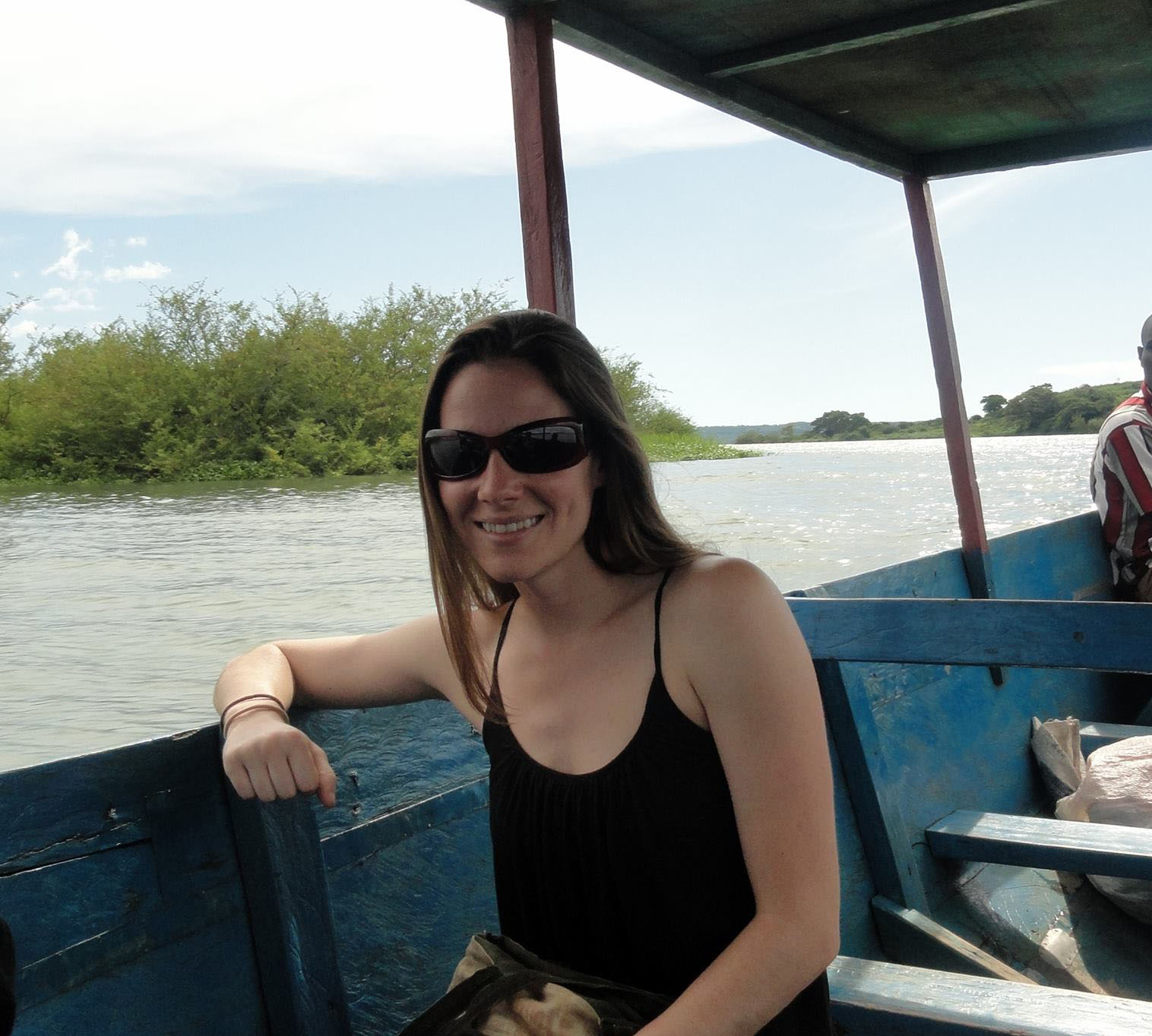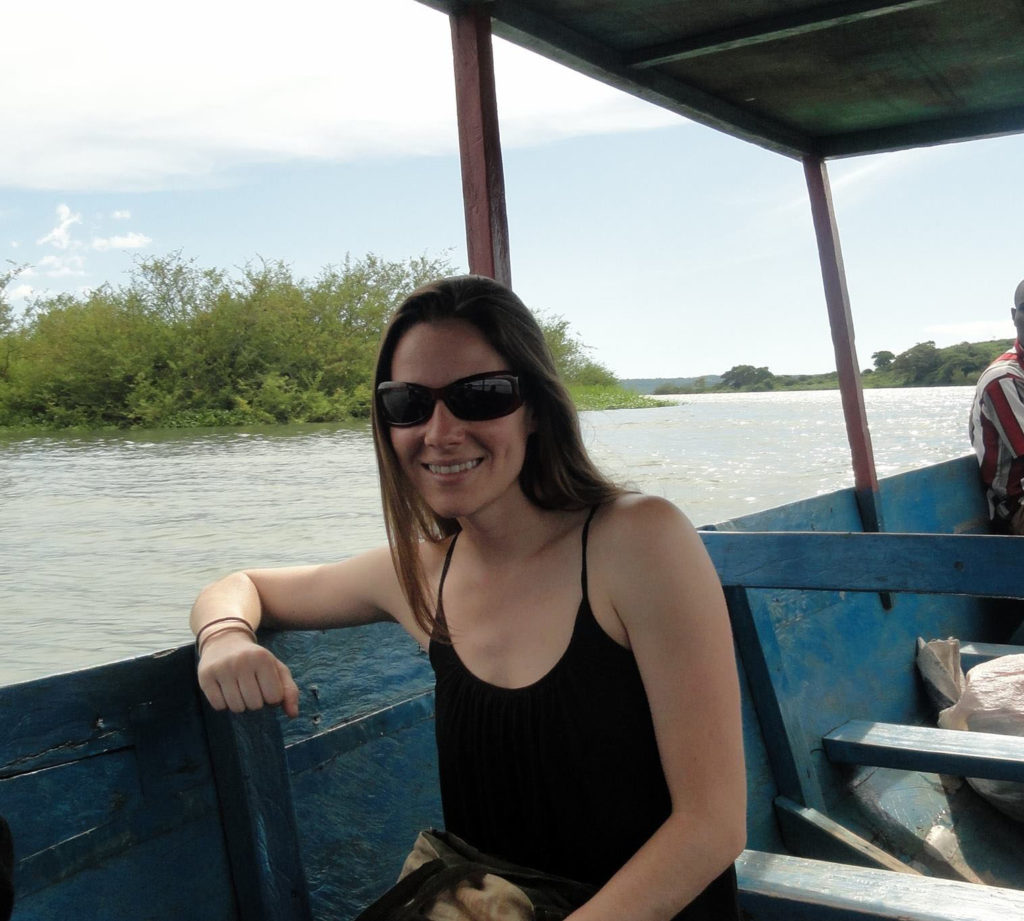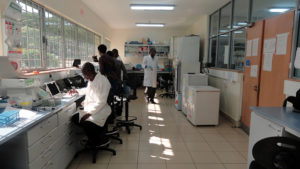Student Spotlight: Briana Flaherty

 Briana Flaherty, a graduate student in David Peterson’s laboratory, has been a trainee on CTEGD’s NIH T32 training grant for interdisciplinary parasitology, vector biology, and emerging diseases. Upon her return from Kenya where she conducted research with Dan Colley’s group in Kisumu, Briana talked about her experience there as well as her overall training at the University of Georgia.
Briana Flaherty, a graduate student in David Peterson’s laboratory, has been a trainee on CTEGD’s NIH T32 training grant for interdisciplinary parasitology, vector biology, and emerging diseases. Upon her return from Kenya where she conducted research with Dan Colley’s group in Kisumu, Briana talked about her experience there as well as her overall training at the University of Georgia.
What are your primary research interests?
My research has two primary foci: (1) drug treatment methods and applications in Plasmodium falciparum and (2) understanding the maternal immune response to placental malaria.
What have been some of your most memorable achievements so far during your graduate training at UGA?
In addition to classes and research towards my Ph.D., I have also completed a graduate certificate in global health through the UGA College of Public Health Center for Global Health. Additionally, as well as receiving the CTEGD NIH T32 Institution Training Grant, I was awarded a 2014 Innovative and Interdisciplinary Research Grant. I also had the honor of delivering an oral presentation at the American Association for Tropical Medicine and Hygiene 62nd Annual Meeting.

As a T32 trainee you are provided an opportunity for a capstone research experience abroad, please tell us a little about your experience.
I did my capstone experience in May, 2014 with Dr. Dan Colley’s group in Kisumu, Kenya. Previous studies have demonstrated Th2 immune biasing in schistomsome-infected individuals. Such biasing may affect host immune responses to important vaccinations. My research in Kenya involved analyzing the influence of infection with schistosomiasis or soil-transmitted helminths on adult immune responses to the hepatitis B vaccine. My time was divided between the field, where I assisted with blood collections, and the lab, where I utilized enzyme-based immunoassays (ELISAs) to measure hepatitis B antibody levels in blood serum from study participants.
My experience in Kenya provided an exceptional opportunity to gain experience both working in the field and in a laboratory in a developing setting; this short time has had a profound impact on my future interests and career goals.
Why did you choose to study at the Center for Tropical and Emerging Global Diseases at The University of Georgia?
I have a strong interest in studying infectious and parasitic diseases, particularly those that disproportionately affect underprivileged populations. My initial interest in UGA stemmed from its proximity to the CDC, but, ultimately, I was won over by the research and people in the Department of Infectious Diseases and, especially CTEGD. It’s a unique opportunity to have so many parasitology experts in a single location.
What has been your favorite experience at UGA?
At UGA, there is enormous opportunity to gain exposure to a wide variety of research fields and interests. In addition to classwork and personal research, CTEGD works hard to bring in interesting speakers to their departmental seminars, the annual Voices from the Vanguard seminar series, and the annual CTEGD symposium. Also, within CTEGD there is a great collaborative work environment that provides developing scientists with access to a wide variety of research techniques and ideas.
What are your future career goals?
For some time now, I’ve had a growing interest in shifting my focus towards public health and epidemiology. My ultimate goal is to combine my experience in bench research with training in public health to carry out research-driven and /or applied public health work that contributes to the understanding and prevention of human disease.
How has the training experience at CTEGD helped in reaching your career goals?
Being a T32 trainee has provided me with important opportunities to develop my research interests and skills. The experiences afforded by this traineeship – attending and presenting at local and international meetings, taking classes, conducting research, and participating in a capstone experience – have shaped and fostered my research interests and career goals in an unparalleled way.
